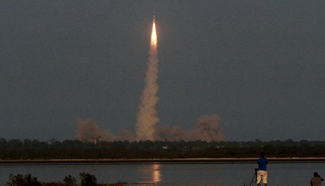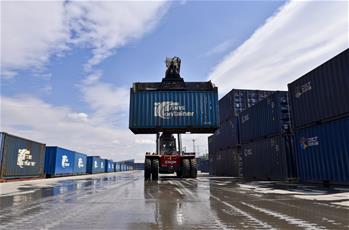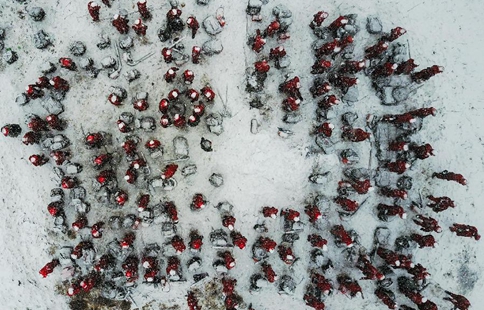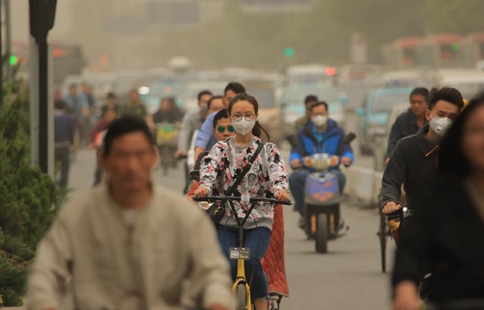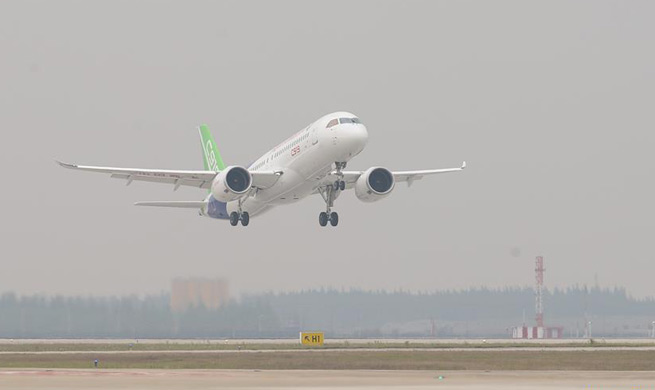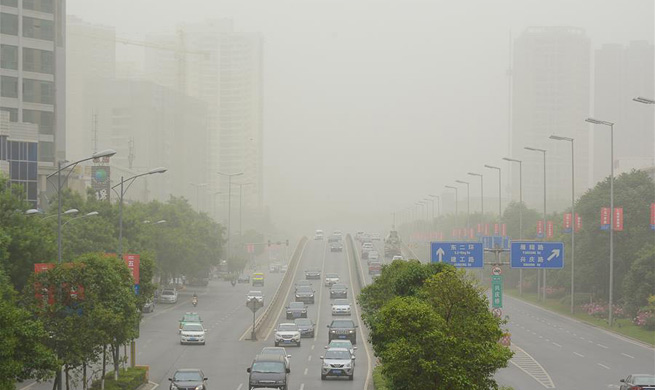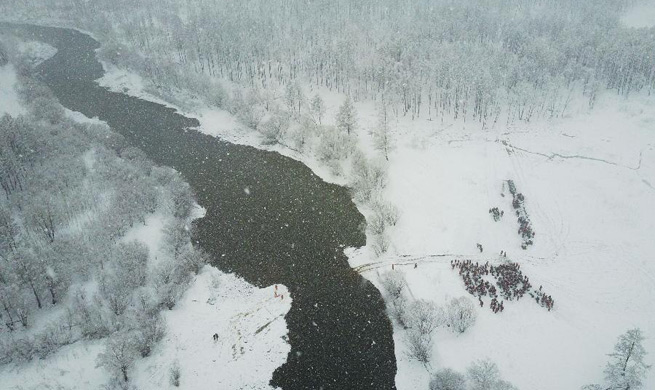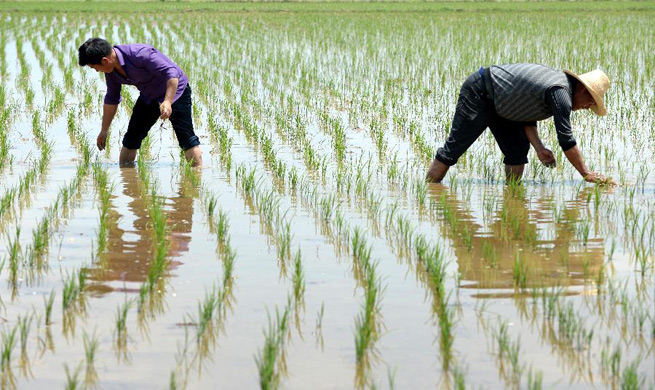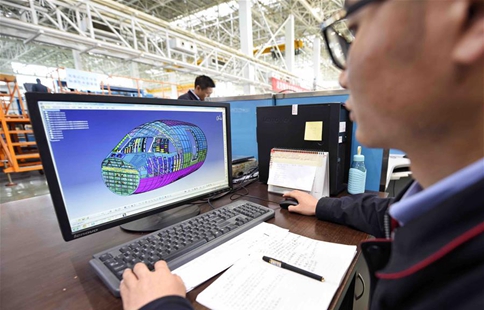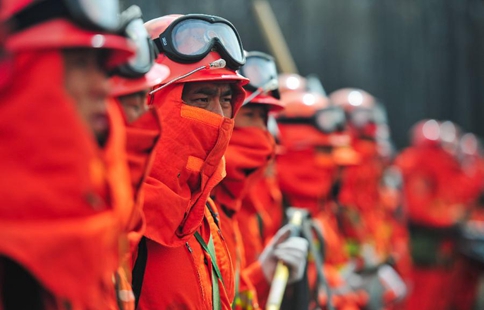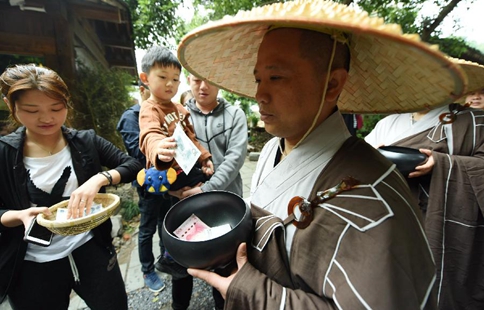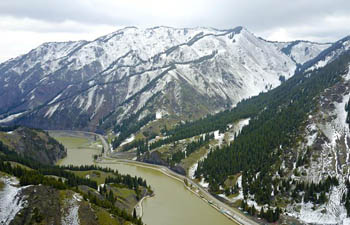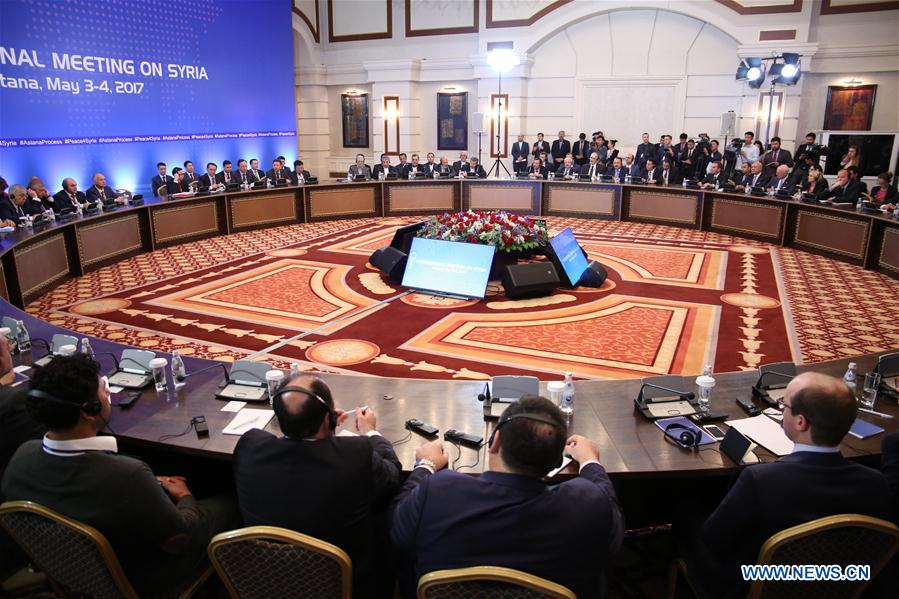
Photo taken on May 4, 2017 shows the meeting of Syria peace talks in Astana, Kazakhstan. Russia, Iran and Turkey signed a memorandum on the creation of four safe zones in war-torn Syria here on Thursday. (Xinhua/Ospanov)
DAMASCUS, May 6 (Xinhua) -- The de-escalation zones deal went into effect in Syria at midnight Saturday, local al-Watan online newspaper reported.
The deal was signed by Russia, Iran and Turkey on Thursday, said the report.
Earlier on Friday, Russian media reports cited Russia's General Sergei Rudskoi, head of the main operational directorate of Russia's military, as saying that the agreement brokered by Moscow, Ankara and Tehran to establish "de-escalation zones" in main battlefields in Syria will go into force at midnight Saturday.
According to the agreement, the government and opposition forces will halt fighting for six months in four zones: the northwestern province of Idlib, the central province of Homs, the Eastern Ghouta countryside of Damascus and areas in the Daraa and Qunaitera provinces in southern Syria.
Under the deal, the safe zones, or de-escalation zones, will be free of battles and airstrikes.
By June 4, guarantors of the deal will establish the exact borders of the zones, according to Russia's Defense Ministry.
On Thursday evening during the Astana talks, Russia, Iran and Turkey signed a memorandum on the creation of four or more safe zones in Syria.
"The cease-fire guarantor states announce that the memorandum on the establishment of de-escalation zones in Syria provides the creation of security zones to stop violence, improve humanitarian situation and create conditions for the advancement of the process and political settlement of the Syrian conflict," Kazakh Foreign Minister Kairat Abdrakhmanov said.
The deal excludes the terror-designated groups such as the Islamic State (IS) group and the al-Qaida-linked Nusra Front, as the battles against those groups will continue.
On Thursday, UN Special Envoy for Syria Staffan de Mistura also hailed the plan.
"Today in Astana I think we have been able to witness an important promising positive step in the right direction in the process of de-escalation of the conflict," he said.
On Wednesday, Syria's Foreign Ministry announced the acceptance of the Syrian government to the safe zone plan.
The ministry said the Syrian government's approval comes out of its concern for the lives of the Syrians.
However, some factions of the Syrian opposition refused to accept it, saying the pact threatens Syria's territorial integrity.
Still, analysts say the implementation will likely happen if Turkey, the main backer of the rebels, signed the deal, as the rebels cannot survive without the crucial support of Turkey and Arab Gulf states.
Meanwhile, Bashar Ja'afari, the head of the Syrian delegation to Astana, said the fourth round of talks in the Kazakh capital constitutes a "qualitative leap" in terms of achievements, as the proposal will help stop the bloodletting in Syria.




